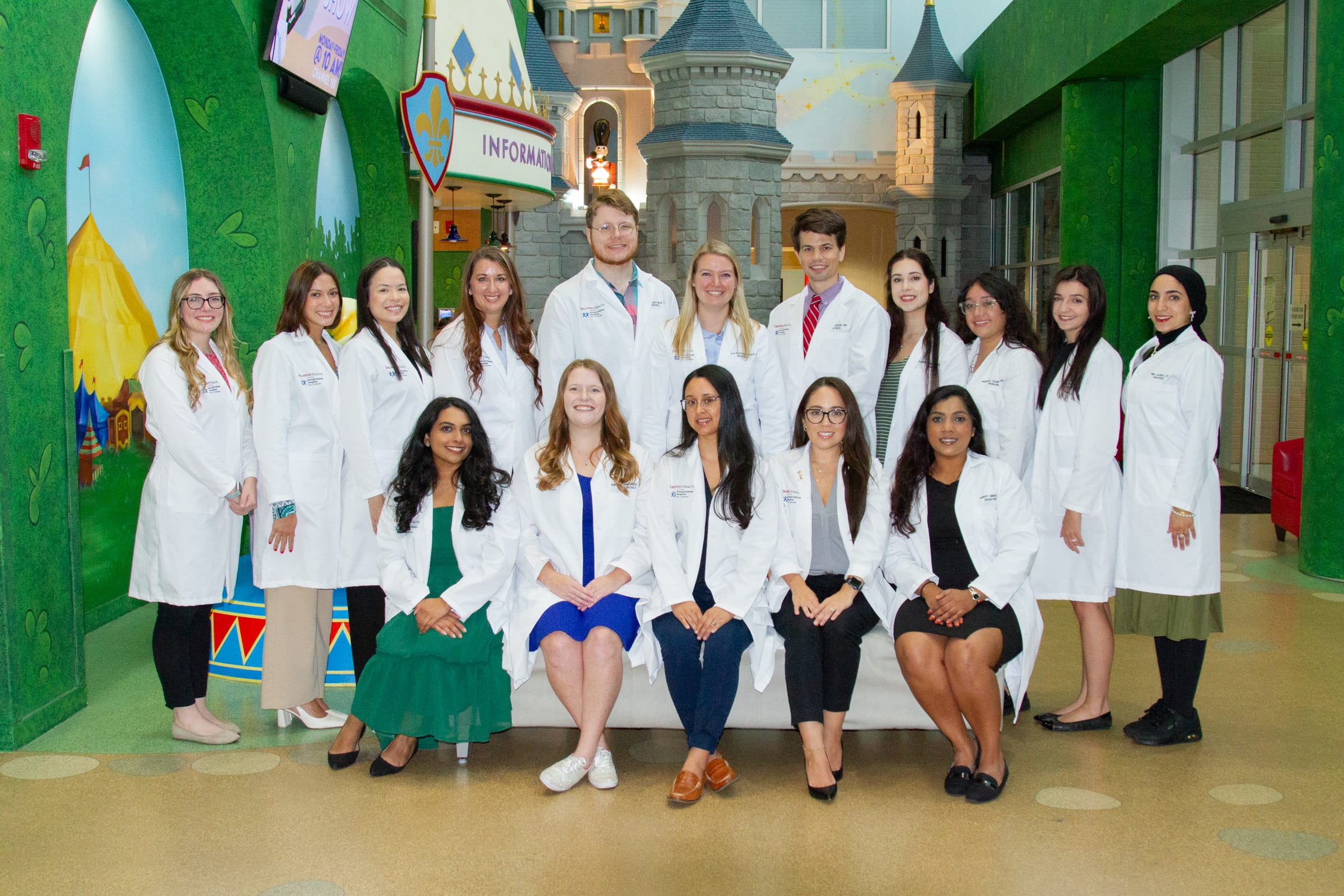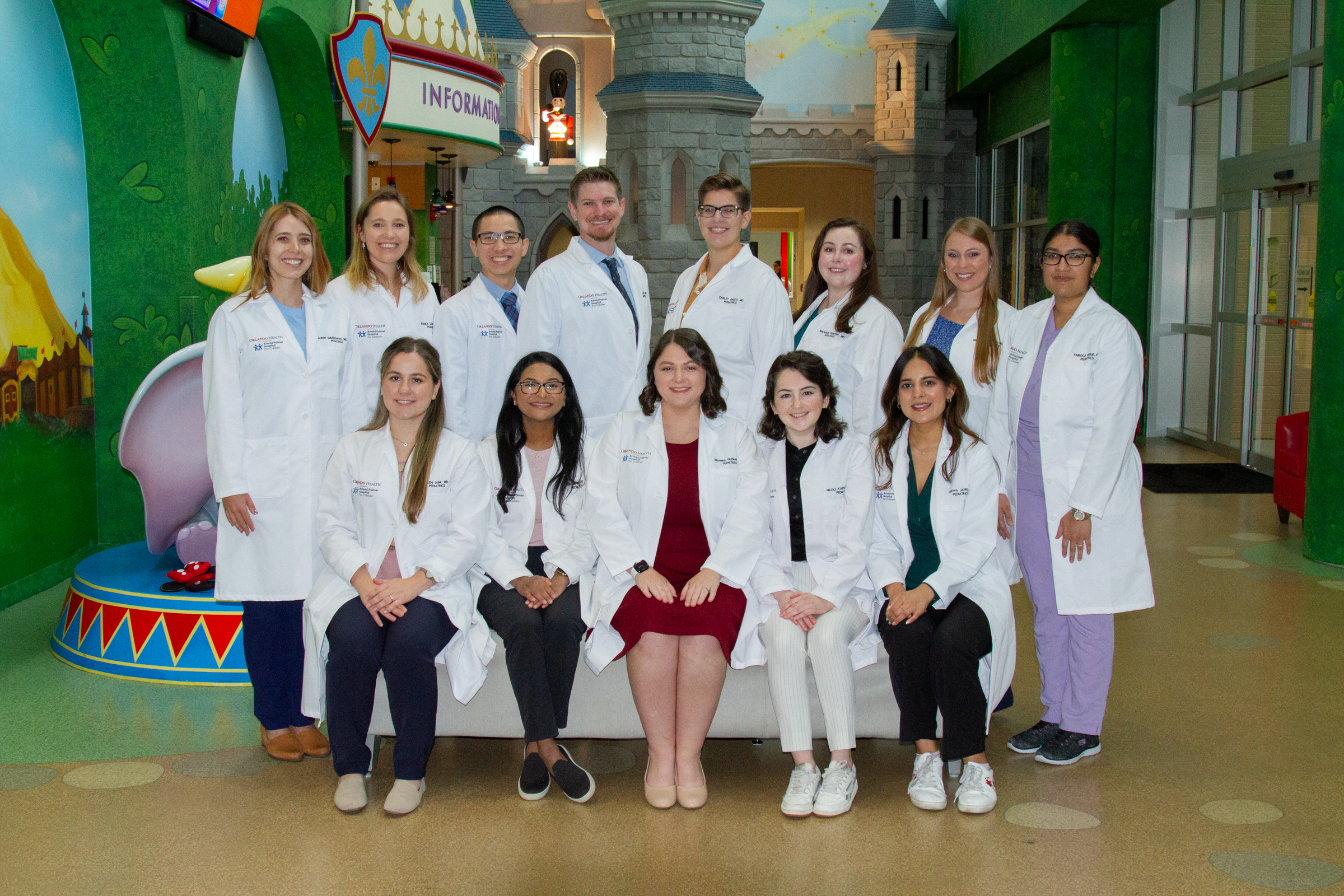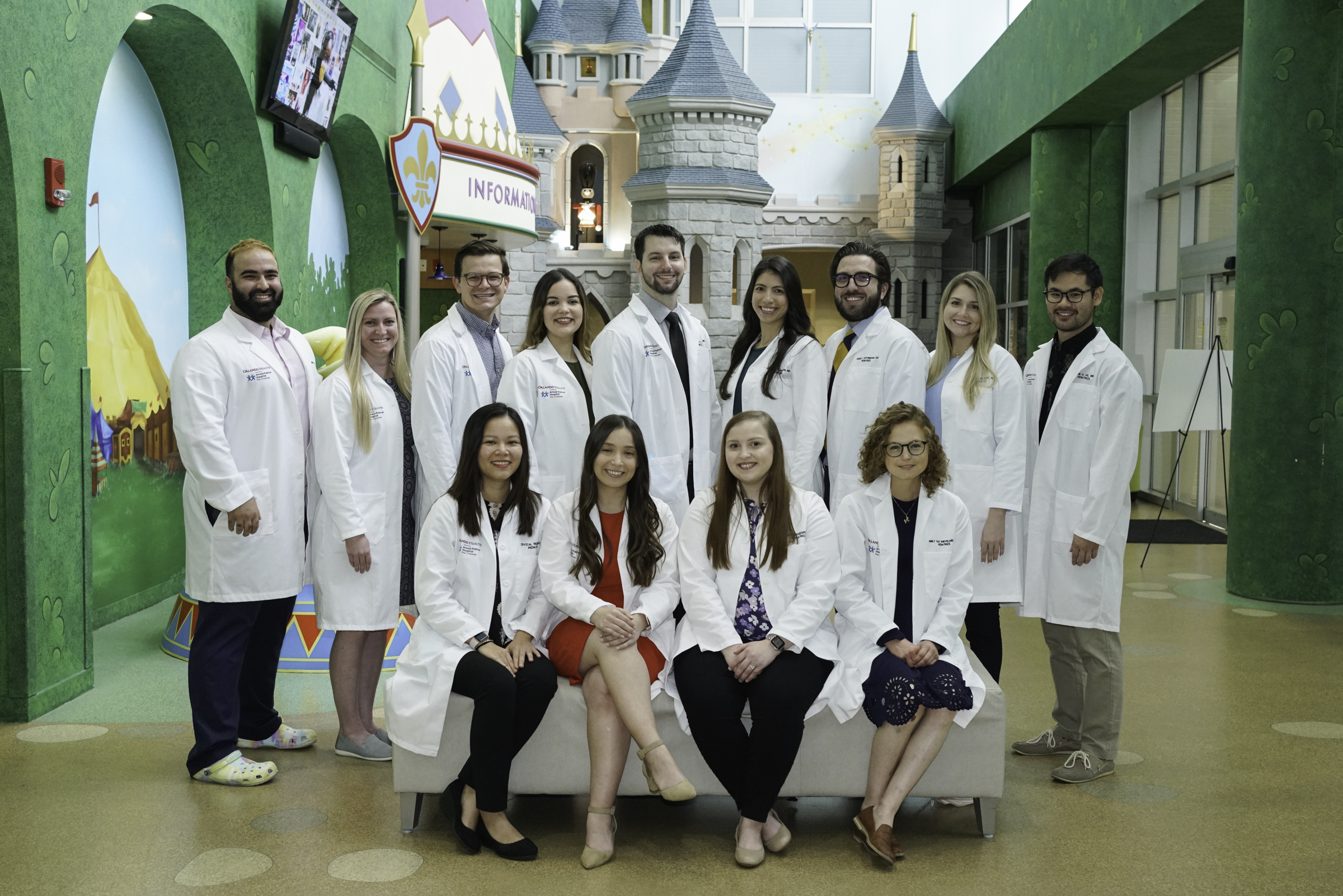Our program maintains a strong focus on primary care education while providing excellent exposure to the pediatric specialties and the care of medically complex children in a tertiary care setting. Our curriculum is structured to provide residents with increasing levels of responsibility for patient care, clinical supervision, and teaching of junior residents and medical students.
Residents care for a diverse patient population in the inpatient, outpatient, and community settings. Patient safety, evidence-based medicine, and continuous quality improvement are additional areas of focus.
Our curriculum is continually improved through feedback from faculty and residents.
The academic year consists of 13 blocks. Each block consists of 4 weeks.
Curriculum

PGY 1
- Inpatient (General) – 2 blocks
- Inpatient (General) Night Float
- Pediatric Special Care Unit
- Neonatal Intensive Care Unit
- Newborn Nursery
- Emergency Medicine
- Hematology / Oncology
- Acute Clinic
- Adolescent Medicine
- Behavior and Development
- Advocacy / Procedures
- Elective

PGY 2
- Inpatient (Subspecialty)
- Pediatric Intensive Care Unit
- Pediatric Special Care Unit
- Neonatal Intensive Care Unit
- Newborn Nursery
- Emergency Medicine
- Community Outpatient
- Child Protection Team / Behavior and Development / Adolescent
- Elective - 2 Blocks
- Individualized Learning Curriculum - 2 blocks
PGY 3
- Inpatient (General)
- Inpatient (General) Night Float
- Pediatric Intensive Care Unit
- Pediatric Critical Care Night Float
- Hematology / Oncology Consults and Clinic
- Medical Education Teaching Rotation
- Acute Clinic
- Elective – 3 blocks
- Individualized Learning Curriculum – 3 blocks

Inpatient Rotations
Inpatient Pediatrics
Residents gain skills in the care of acutely ill and hospitalized pediatric patients during their Inpatient Pediatrics rotations. Residents also rotate through a subspecialty rotation focused on patients from a variety of subspecialties including nephrology, gastroenterology, pulmonology, and endocrinology.
Hematology / Oncology
The Center for Children’s Cancer and Blood Disorders is housed within Orlando Health Arnold Palmer Hospital for Children and comprises a 20-bed inpatient unit, an outpatient clinic with a chemotherapy infusion center and a radiation oncology department.
Pediatric Intensive Care and Special Care
Residents participate in the care of critically ill children in the 17-bed Pediatric Intensive Care Unit (PICU). The unit supports a dedicated pediatric critical transport service and serves as a major referral center for critically ill pediatric patients from all over Central Florida. Current critical care technologies such as extracorporeal membrane oxygenation (ECMO), hemodialysis, and high-frequency oscillatory ventilation are offered. The PICU provides residents with valuable experience in invasive cardiovascular monitoring, complex fluid management, mechanical ventilation, and postoperative management.
The Pediatric Special Care Unit (PSCU) is a 26-bed stepdown unit that cares for children that require monitoring and close observation.
Neonatal Intensive Care (NICU)
Residents are exposed to the full range of medical and surgical disorders of premature and term newborns as well as to the latest technological modalities including extracorporeal membrane oxygenation (ECMO). The 142-bed NICU is the largest in the country under one roof, and cares for more than 1,600 babies every year.
Nursery
Residents are responsible for caring for newborns in the Well Baby Nursery and Transitional Care Nursery. Residents are exposed to a wide variety of normal and abnormal newborn conditions. They also perform procedures such as circumcisions and frenotomies.
Outpatient Rotations
Continuity Clinic
Residents have their Continuity Clinic at the Orlando Health Pediatric Primary Care Practice (OHPCP), located within walking distance of Orlando Health Arnold Palmer Hospital. Residents provide general health maintenance and supervision for a diverse, largely underserved population of patients from the Orlando community.
Acute Clinic
Located at OHPCP, residents see acute health conditions most encountered in the office setting and the care of acutely ill children and adolescents.
Emergency Medicine
The Bert Martin's Champion for Children Pediatric Emergency Department & Trauma Center at Orlando Health Arnold Palmer Hospital is a 33-bed ER. The center is the only Level 1 Pediatric Trauma Center in Central Florida and provides care for over 55,000 patients each year.
Behavior and Development
During this rotation residents learn the basic concepts of normal child development and screening; disorders of cognition/ language; and behavior and mental health issues. Residents spend time in various sites including the Howard Phillips Center for Children and Families, Prescribed Pediatric Extended Care and several special needs schools.
Advocacy/ Child Protection
During this rotation, residents enter the community where they can see first-hand the many factors that impact a child's health. Residents spend time with local agencies including the Ronald McDonald House, Second Harvest Food Bank, Coalition for the Homeless, and a nearby charter school. The rotation helps residents understand the needs of patients, the resources available, and prepares them to be agents of change within the community. The rotation also includes a 2-week experience with Child Protection Team through which residents learn about child abuse prevention and intervention.
Electives and Individualized Learning Curriculum Rotations
Residents can choose electives based on their career path/ interests. Rotations are crafted based on our resident’s needs.
Electives include: Allergy/Immunology, Cardiology, Child Abuse, Dermatology, Endocrinology, Gastroenterology, Genetics, Infectious Disease, Nephrology, Neurology, Pulmonology, Rheumatology, Sports Medicine, Anesthesiology, Heme-Onc Clinic, Hospice and Palliative Medicine, Lactation, Neurosurgery, Newborn Resuscitation, Nutrition, Orthopedic Surgery, Otolaryngology, Procedures, Radiology, Scholarly Activity, Surgery, Transport Team.
Medical Education Rotation
During this rotation, residents develop teaching and leadership skills by instructing their peers, junior residents, and medical students.

